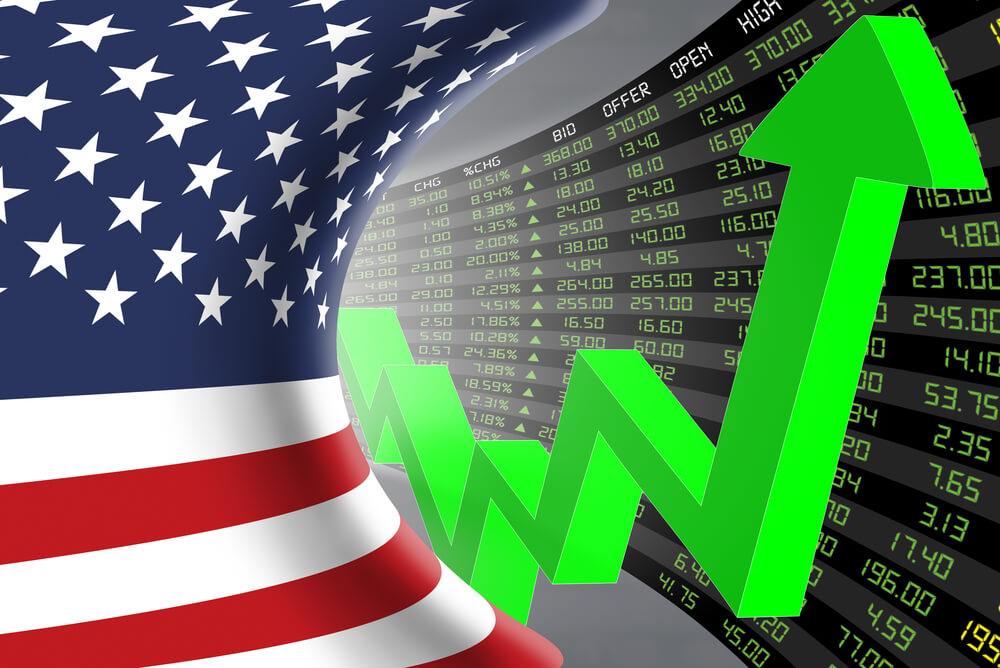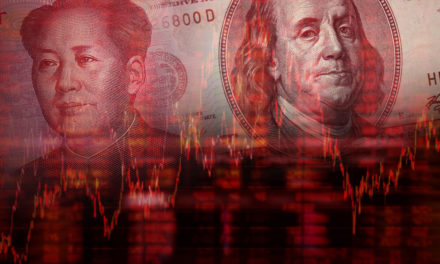Stocks ended higher on Wall Street after President Donald Trump said China wants to make a deal on trade and more in Monday’s Stock Market Update.
Big technology companies, which do a lot of business in China and have much riding on the outcome of the trade dispute, rose the most Monday. Apple climbed 1.9%.
Traders were encouraged after Trump said his negotiators had received encouraging calls from China on Sunday, however China’s foreign ministry denied knowledge of any such calls.
Uncertainty remained high about the next developments in the conflict, which has repeatedly seen the sides attempt to negotiate before ending in acrimony and more tariffs and trade penalties.
“It always seems that Trump, after he does something to freak the market out or escalate this trade war, he tries to dial it back to some degree,” said Brad Bernstein, senior portfolio manager at UBS Wealth Management USA. “As an investor, you just have to know there’s a lot of uncertainty and there is no clarity in the short term right now.”
Communications services and health care stocks also contributed to the gains as the market clawed back some of its heavy losses from last week.
STOCK MARKET UPDATE
The S&P 500 rose 31 points, or 1.1%, to 2,878. The Dow Jones Industrial Average climbed 269, or 1.1%, to 25,898. The Nasdaq rose 101, or 1.3%, to 7,853.
U.S. stocks are coming off their fourth straight week of declines.
Bond prices fell. The yield on the 10-year Treasury rose to 1.54%.
Major indexes in Germany and France closed higher. Markets in Britain were closed for a national holiday. In Asia, Hong Kong’s Hang Seng and Japan’s benchmark Nikkei 225 closed lower.
Stock markets have been volatile this summer as traders have been whipsawed by the turns in the trade war between the world’s biggest economies.
The conflict escalated once again on Friday, after China announced new tariffs on $75 billion in U.S. goods. Trump responded angrily on Twitter, at one point saying he “hereby ordered” U.S. companies with operations in China to consider moving them to other countries, including the U.S.
Trump also later announced that the U.S. would increase existing tariffs on $250 billion in Chinese goods to 30% from 25%, and that new tariffs on another $300 billion of imports would be 15% instead of 10%.
The new round of tariff threats caused a sell-off on Friday that erased more than 600 points from the Dow. Global markets appeared headed for another wave of selling early Monday, when indexes in China closed sharply lower, until Trump said his trade negotiators had received two “very good calls” from China on Sunday.
Ben Phillips, chief investment officer at EventShares, credited Monday’s market bounce on investors buying back in after a big sell-off more than on real optimism over the long-running trade conflict.
“Every time you have a big down day like that you expect the following day to be a little bit of a recovery bounce that is more bouncing on the sell-off than it is on anything happening today,” he said.
Another thing that investors may have to gird themselves for is more sharp turns in the trade negotiations.
“There’s not a clear strategy on trade, that’s what the market is coming to terms with,” Phillips said. “That’s what Friday showed us. The market is getting worried about emotions running high in the White House and less logic.”
© The Associated Press. All rights reserved.




